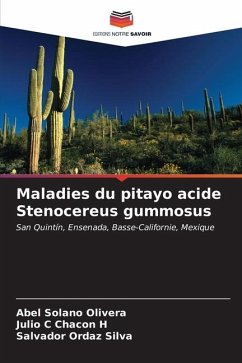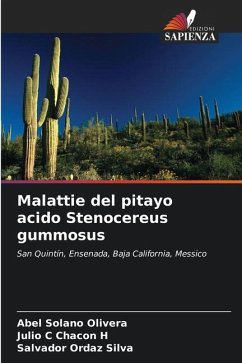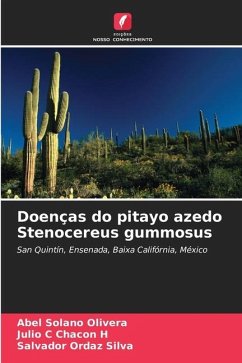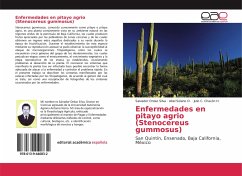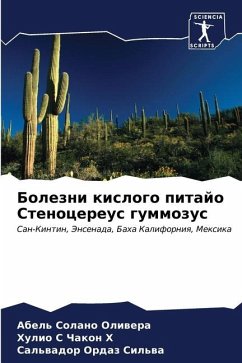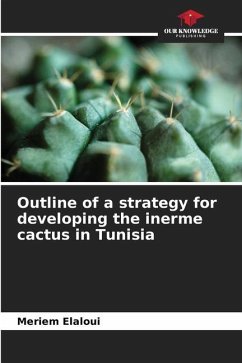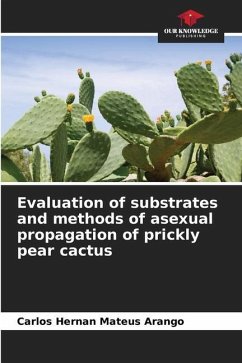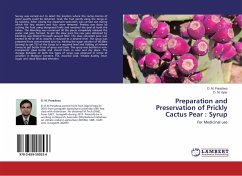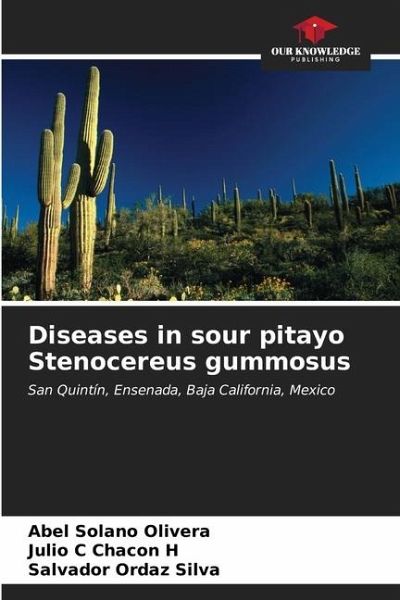
Diseases in sour pitayo Stenocereus gummosus
San Quintín, Ensenada, Baja California, Mexico
Versandkostenfrei!
Versandfertig in 6-10 Tagen
27,99 €
inkl. MwSt.

PAYBACK Punkte
14 °P sammeln!
Stenocereus gummosus, commonly known as pitayo or pitayo agrio, is a plant commonly seen in its natural environment in the arid regions of the peninsula of Baja California, which produces fruits appreciated by the inhabitants of nearby areas and from which those dedicated to its sale during the fruiting season obtain an extra income. During the establishment of this species through asexual reproduction, it was possible to observe the susceptibility to attack by phytopathogenic microorganisms, among which are five genera of the deuteromycetes group, which damage stages such as rooting, vegetati...
Stenocereus gummosus, commonly known as pitayo or pitayo agrio, is a plant commonly seen in its natural environment in the arid regions of the peninsula of Baja California, which produces fruits appreciated by the inhabitants of nearby areas and from which those dedicated to its sale during the fruiting season obtain an extra income. During the establishment of this species through asexual reproduction, it was possible to observe the susceptibility to attack by phytopathogenic microorganisms, among which are five genera of the deuteromycetes group, which damage stages such as rooting, vegetative growth and the reproductive stage of the stakes already established, causing problems to the development of the plant. Recognizing the symptoms manifested by the plant after infection makes it possible to find the appropriate way to attack the disease and control the problem quickly. This paper describes the symptoms manifested by cuttings infected by phytopathogens, according to the genus in question, as well as a compilation of photographs of the symptoms caused by the diseases.



